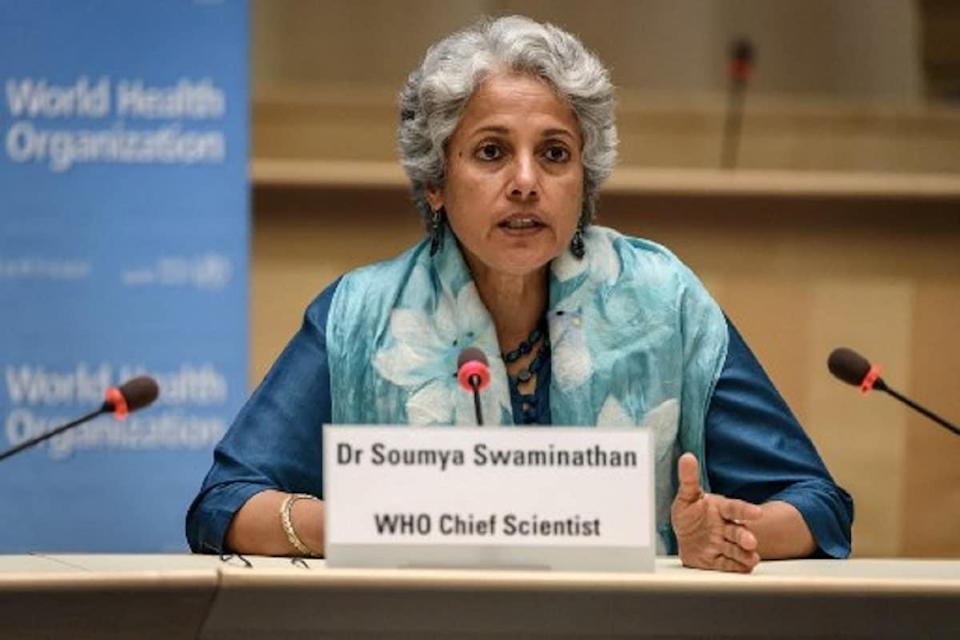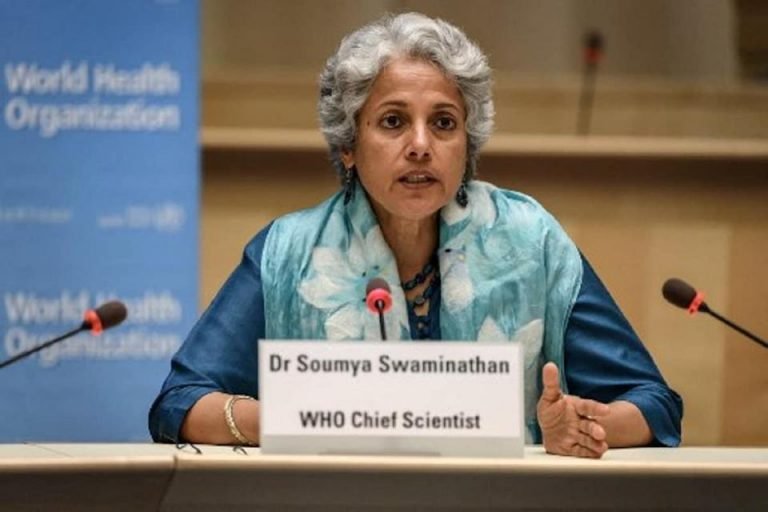The Chief Scientist of the World Health Organization (WHO), Dr. Saumya Swaminathan said on Monday that India’s second data shows that preliminary data has shown that the Indian variant is more contagious and contagious, leading to heterogeneity in the country. The spread of infection. Urging people to get vaccinated, he said that vaccination is important because it would reduce the severity of coronaviruses.

In an exclusive interview Sheeran Bhan, Swaminathan stated that the double mutation strain includes variants found in Brazil and South Africa and that it develops the body’s immune response.
“Growth in India raises the possibility of emerging more dangerously. Preliminary data suggests that the Indian version is more contagious. There is an unevenness in India in terms of the spread of Covid-19. The WHO is concerned about the number of cases and deaths in India. Globally, cases and deaths do not occur in South Asia. South East Asia is seeing the case grow in India. Overall, the numbers indicate what is happening; there is a need to delve deeper into the state, local level data.
Speaking on the efficacy of available vaccines in India, he assured, “There is not enough data to show that double mutants are vaccine resistant.” All vaccines available in India and elsewhere still prevent serious illness and death, even if you have an infection. You will not end up in a seriously ill ICU. The message is taking the vaccine which is also available and you are eligible for it. If it is your turn, please take it. “
This can also be seen as an explanation on his previous comment by Swaminathan in an interview, where he was quoted as saying that the Indian version could dodge “vaccine rescue”, an explosive outbreak of the country. Contributes to
Asked about how the WHO will soon be able to get data on transmission of B.1.617 variant of Covid-19, which was first revealed in India in October, he said, “We will have to wait for the data to arrive.” WHO’s expert groups are working with it and are in touch with Indian scientists. I believe that in the next few weeks we will have sufficient data from laboratory and clinical epidemiological observations. WHO has classified mutants as of interest when a variant is becoming more prominent. Still very few clinical and epidemiological data conclude whether B.1.617 is more viral or not. Currently available data tells us that it is more communicable. “
“The study suggests that even if the variants are susceptible to anti-body, the vaccine can reduce the severity of the disease. Just wanted to reassure the public that there is no such thing as saying that vaccines are new to this new version. Not working on resistors, ”she reiterated.
The WHO recently listed B.1.617 – which counts several sub-lines, with a few different mutations and characteristics – as “different types of interest”.
“It would have been easier to compare and clarify vaccines for WHO approval if all vaccine manufacturers had followed the WHO solidarity test process,” Swaminathan said, adding that not only India, many countries have also approved the Covid-19 vaccine. Relying on COVAX struggling to supply. “We (WHO) are hoping to get more data on vaccines like Sputnik, Sinopharm, etc. Israel’s vaccination has shown that the Pfizer shot is about 90 percent effective in the real world,” he said.
The WHO scientist also pointed out that head-to-head vaccine testing should have been done from the beginning. “Globally, we have 14–15 vaccines available. The new generation of vaccines, we rely on the trial of solidarity vaccines. We have to use real-world data to understand how vaccines are performing worldwide. Based on real-world effectiveness studies on effectiveness and safety.
Meanwhile, after registering more than four lakh fresh cases for four consecutive days, India saw a one-day increase in 3,66,161 Covid-19 cases on Monday, which, according to the Ministry of Health, puts it at 2,26, Reached 62,575. According to the ministry data, the number of deaths due to coronovirus rose to 2,46,116 with 3,754 deaths at 8 am.

